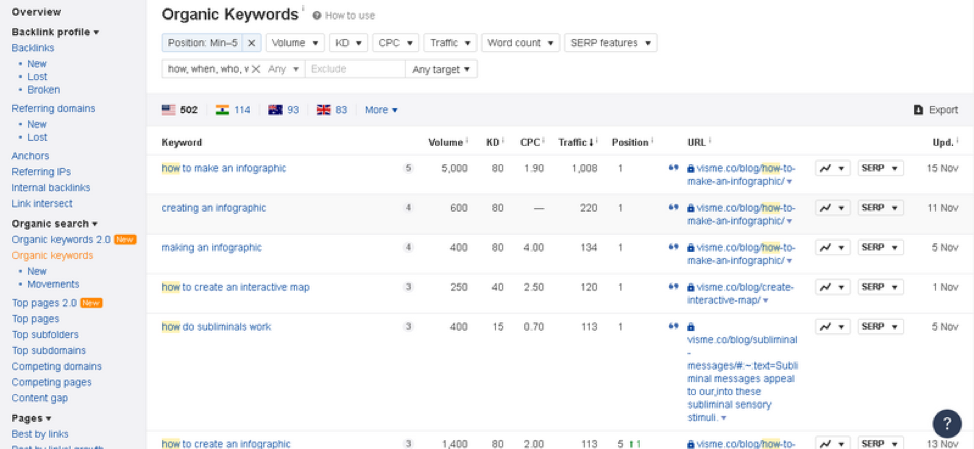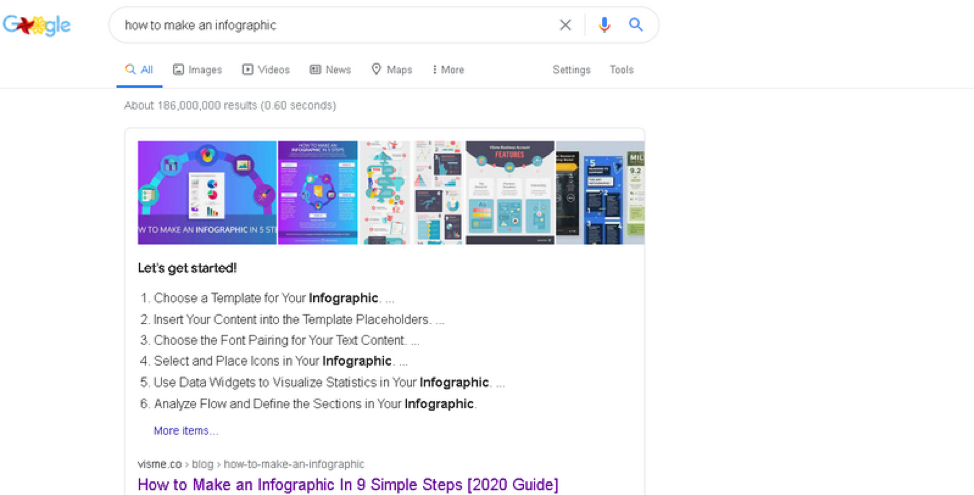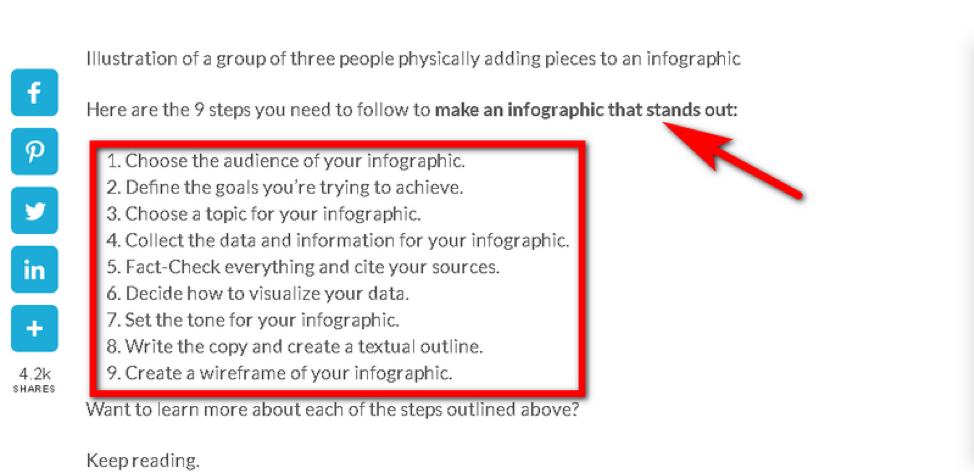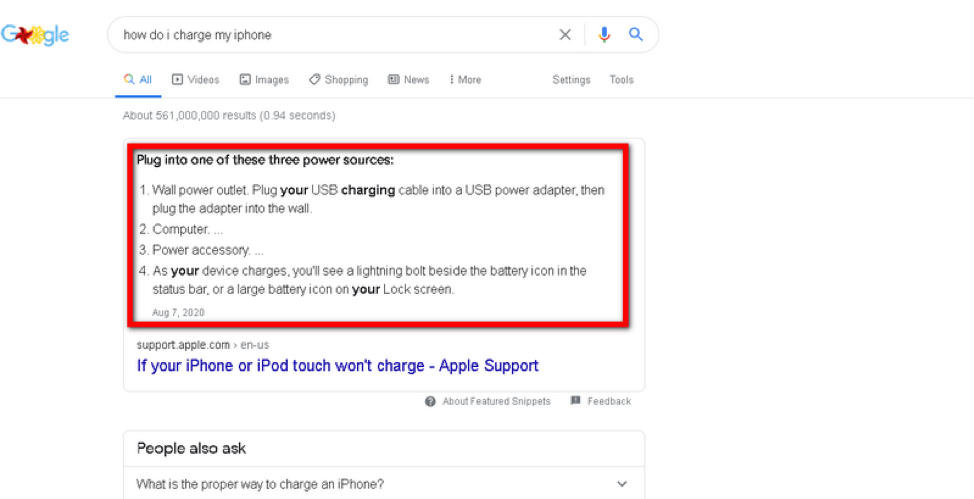Nowadays, it becomes less convenient to search for information on Google by typing the inquiries with your fingers. You can drive the car or your hands might be busy with something else.
Therefore, Google has given us a helping hand by creating an option that allows us to search the information by voice.
A voice search had already developed its reputation among Google search users. As a result, SEO specialists started to find ways on how to optimize for it their web-resources.
This all-embracing guide will provide you with everything you need to know about voice search. Moreover, you will get some actionable optimization tips as well.
Let’s start!
A Few Words About Voice Search
To put it simply, voice search is when you use your voice instead of typing a text to find the information on Google.
But the main point here is that you must interact with the Google search engine directly. Literally, you should say something like “Hey Google, how to record voice online?” and you’ll get the right instructions in a blink of an eye.
Using voice search is quite popular among people. Hence, according to Google’s survey, 55% of teenagers and 41% of adults use this option daily. Most of all, people use voice search for the following needs:
- 68% quick facts
- 65% directions
- 47% businesses
- 44% products/services
Right before you find out how to optimize for voice search, you must know three important things.
- Answers from top-pages
Google can provide you with the results from the top-ranking pages. And 91% of these results come from Google Top 5 pages.
- Answers with the featured snippets
If you review this analysis, you will see that 40.7% of voice search answers come from the feature snippets.
- Results depend on the device you use
If you ask Google how to make pasta, you will get a basic answer. But if you ask the same question via Google Home, you will get a pasta recipe in detail.
Now, let’s move forward and find out how to optimize for voice search.
Voice Search Optimization
As has been already stated, the voice search option is convenient for people to use. But it is slightly primitive as technology. What’s more important, there is no opportunity to analyze keywords that people use for voice search.
Consequently, the only thing that is a hundred percent correct is that voice search is limited for simple questions.
And when it comes to the process of optimization, all that you will have to do is to optimize for relevant questions your target audience asks.
There are seven steps you should take to optimize for voice search. Let’s review them one by one.
1. Google My Business profile
You know that 47% of queries people ask Google using voice search are related to business. And one of the best solutions to optimize for this type of query via creating a Google My Business account. It will allow you to provide your target audience with all the necessary information about your business once someone asks something.
Moreover, GMB is good for a local type of searches related to your business. But the optimization is not limited to creating a GMB profile. You will have to earn reviews and always keep your listings optimized.
2. Explore questions your target audience is looking for
It was mentioned that voice search optimization stands for researching and creating content that would be aligned with the questions your target audience puts on Google.
The first thing you should do is to find questions you are already ranking for.
Why do you need this?
Let’s say your website ranks high for some questions and when someone types an interrogative inquiry, Google shows your pages at the top search. Consequently, these questions could be your ideal chance for voice search optimization.
To know whether your website ranks for these long-tail keywords, you should review the “Organic Keywords” report from Ahrefs. Just filter down the results by pointing out the position (first 5 SERPs results) and including words “when”. “how”, “why”, etc.

You can find the questions your competitors rank for by using a Content Gap tool that is available in Site Explorer. Even more, you can find the questions for optimization that neither you nor your competitors rank for. Just use the “Questions” report that you can find in the Keywords Explorer tool.

As you can see from the screenshot above I managed to explore “questions” opportunities for my target keywords “graphic design”, “template”, “illustrator”. The report suggested lots of questions that include some of these keywords. Do the same and you will get a fair amount of low-hanging fruits.
3. Think about where you should or should not provide answers
If you want to optimize your content to voice search specifically, you must make sure that your content answers the questions of your target audience.
Before you start to delve into the subject, ask yourself these three questions:
- Have you ever answered this question before?
- Will you be able to add the answer to the particular question on some of your pages?
- Is it worth answering the question in general?
For example, type a query “how to make an infographic” and review the SERP. You will see that our infographic design guide answers this question with a featured snippet covering the steps you’ll need to take.

The best thing here is that our guide answers the questions literally.

Thinking about the possibility of adding the answer to the question on the particular page, you should find out if it makes sense. For instance, our website doesn’t rank for the question “what is social media content” but we have a post on optimizing visual content across social media channels.

To sum up, review the opportunities on your blog and try things out.
Finally, let’s see if it is worth answering the questions in general (especially, on a new page).
Obviously, there is no point to create new pages that would be optimized for voice search. But if you want to cover some new topic that would meet the requirements of your target audience, you can try.
4. Focus on answering the questions
If you want to know how to provide answers to the questions the best, ask Google the questions and listen to the format the answers will be suggested.
Nevertheless, here are a few rules you should follow:
- Try to make answers as shorter as possible (29 words preferably)
- Make sure the answers keep grammatical correctness
5. Optimize a page load speed
Did you know that voice search results load 52% faster compared to the average speed of loading a web-page?
Related article: Learn how by optimization their website for speed, Zetes managed to outperform their competitors during the Covid-19 crisis
According to a study from Backlinko, PageSpeed plays a crucial role in voice search optimization. Nevertheless, you should understand that this correlation data doesn’t prove causation.
In other words, Google takes into account page speed as one of the ranking factors and tends to rank higher the pages accordingly. While voice search results Google catches from the pages in the top five of SERP.
6. Build more backlinks
It is a well-known fact that backlinks are one of the most significant ranking factors. Therefore, Google suggests voice search results from top-ranking pages.
Google can suggest a rich amount of guides on link building. But I recommend you to know exactly how to check backlinks in terms of their quality. Since bad backlinks might do nothing at best but get a site penalized by Google at worst.
7. Make sure you added schema markup
If you want to help search engines to understand your content better, you should implement the specific code called schema markup. And it might help you with optimizing for voice search.
Despite this fact, another study from Backlinko proves the opposite. According to this study, 63.6% of voice search results don’t use schema markup.
Nevertheless, it all depends on what type of content you’re going to optimize for voice search.
Is It Worth Your Time to Optimize for Voice Search?
First of all, think about the questions your target audience might ask Google. Can these questions be answered in a short simple sentence?
For example, I asked Google “how do I charge my iPhone?” and I got a step-by-step instruction in the form of a featured snippet.

Well, basically, this is the end of your target audience journey. People hear what they need to do and don’t click on the URL with further information. As a result, you won’t get any traffic to your website.
By the way, keep yourself always updated with the latest SEO statistics that might prevent you from useless SEO activities.
Secondly, you should understand that not all websites on the Internet exist for earning money. If you take for example government websites, you will see that they don’t have an intent to make money. They aim to provide people with different information that would help solve their issues.
Therefore, voice search would be a good option in this case.
As you can see, there is no right opinion on whether you should or not optimizing your website for voice search. Nevertheless, if you consider this question from a user experience standpoint, you should optimize your website for voice search for sure.
Conclusion
Voice search is a brand-new trend that tends to improve user experience with search engines. It makes our “search routine” easier and more productive.
Plus, this way of website optimization helps you compete with getting featured snippets, land placements in PAA boxes, and being shown up in regular text searchers.
To sum up, voice search optimization is a good additional feature for your website. But it is not something you should be possessed with.


